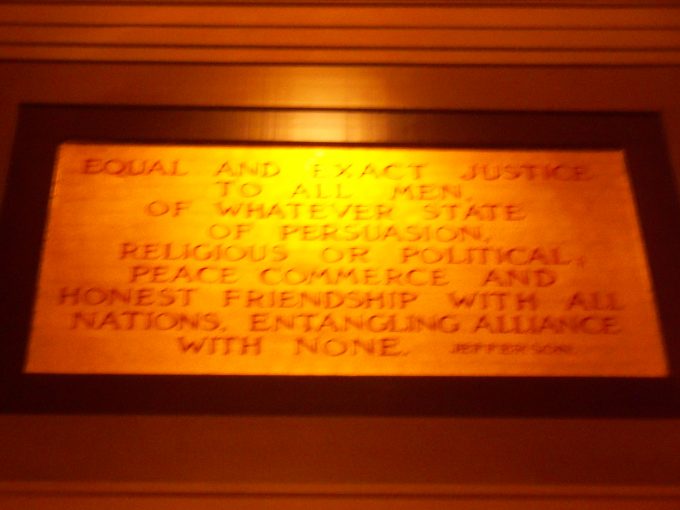
Friday, 7 July 2017
For this reason we also thank God without ceasing, because when you received the word of God which you heard from us, you welcomed it not as the word of men, but as it is in truth, the word of God, which also effectively works in you who believe. 1 Thessalonians 2:13
The words “For this reason” refer to the godly instruction and careful labors that Paul and those with him exerted in their evangelism of those in Thessalonica. It is “For this reason we also thank God without ceasing.” It is evident, even from these words, that their labors were not in vain. Instead they were a source of rejoicing. As he says, “you received the word of God which you heard from us.”
Here, the Greek reads in a different order, more accurately saying something like, “when you received the word of your hearing from us, even the word of God.” The reception of the word into the ear is directly equated with the word of God. In other words, they heard the word of God, and they understood it to be the word of God. This then is explained by the next words, “you welcomed it not as the word of men.” When the Thessalonians heard the word, it was as reasonable and obvious a presentation of the word of God as it could be. In hearing the gospel, it made such sense that it was, without a doubt, not something men had conjured up. Rather, Paul notes, “but as it is in truth, the word of God.”
It was understood, based on the conduct and labors of Paul and his associates, that they were transmitting a truthful message. The two things – the efforts of the evangelists, and the soundness of the message – made it perfectly clear that it was the word of God and not of men which they had been presented. It is this message as Paul says, “which also effectively works in you who believe.” The words “effectively works” are referring to the word, not to God. They are in the middle voice, and as is the case when used by both Paul and James, this middle voice is only of things. In this case, the thing is the word of God.
The word had effectively worked in Paul and his associates, and once it was heard and received by the believers in Thessalonica, it then effectively worked in them as well. This will be further explained by Paul in the coming verses. The word will be shown to have changed them into new people with a new direction. Instead of being enemies of God, they had become people pleasing to Him.
Life application: Faith comes by hearing, and hearing by the word of God. People’s conduct will never be directed to that which is pleasing to God without them being presented the gospel message. There are people all over who do “good stuff,” but without a conversion to Christ, the wall of enmity remains. Only in Christ is that removed. The church age seems to be ending. The world is taking a terrible path into utter wickedness, and many will be eternally separated from God unless they hear and receive the message of Christ Jesus. Speak and share while there is time!
Lord God, it should be pretty evident that the world is becoming exactly as Your word says it would. Wickedness is running rampant, people’s love has grown cold, and the lines of morality are being butchered before our eyes. It is a sign that the time of this age is, in fact, coming to an end. Help us to be sound and faithful witnesses now while we can. Maybe some will turn and open their eyes to the truth of Your word before it is too late. This is our prayer for those who cross our paths. Help us to be the lights of faithfulness to Your word in this ever-darkening place. Amen.




